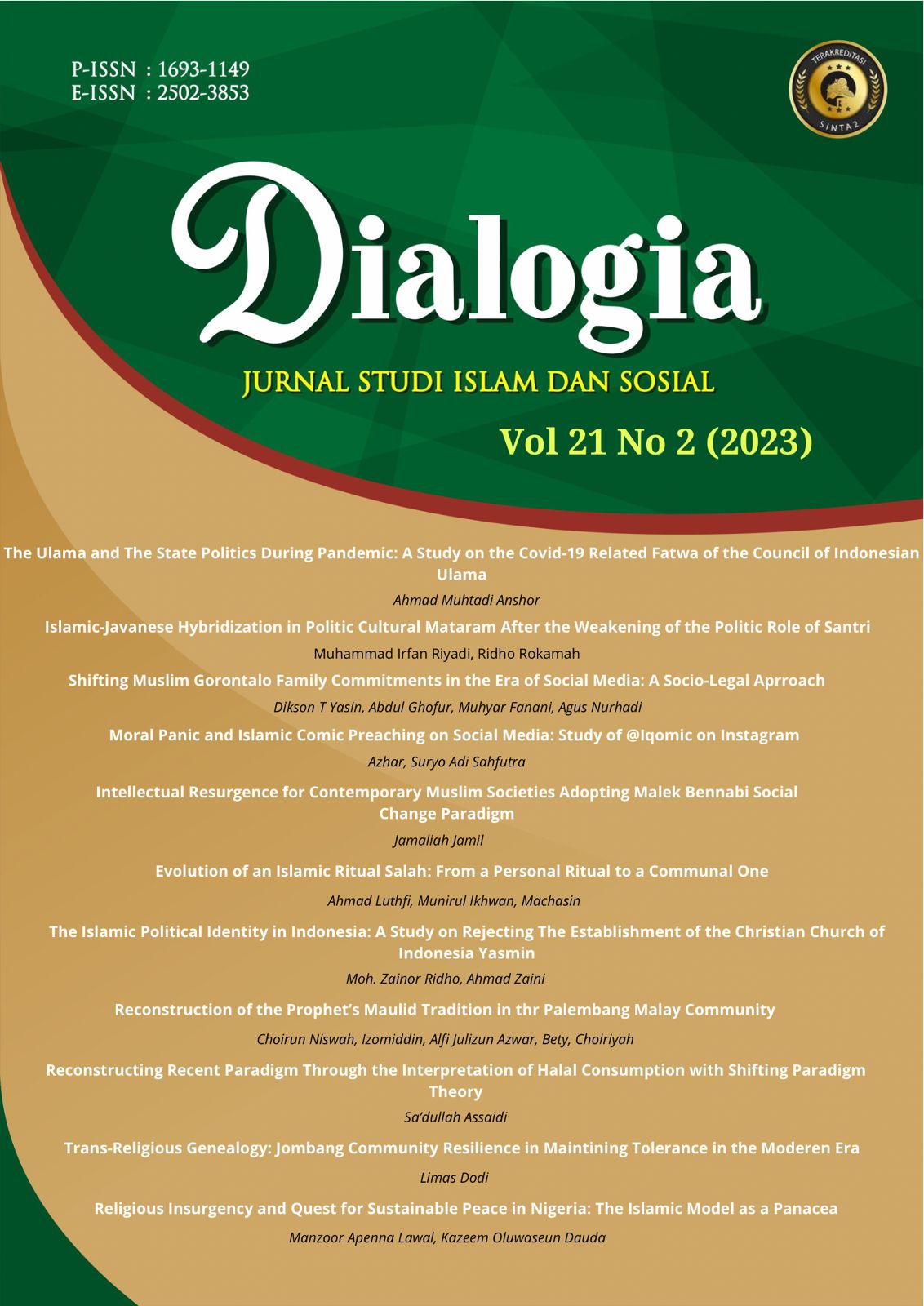Trans-Religious Genealogy: Jombang Community Resilience in Maintaining Tolerance in the Modern Era
DOI:
https://doi.org/10.21154/dialogia.v21i2.7382Abstract
Intolerance is still a socio-religious problem that leads to ongoing conflict. Intolerance gives birth to individualist attitudes, fanaticism, and communal legitimacy. In pluralist and multiculturalist countries, tolerance has not found strong, solid roots, especially withstanding changing times. Tolerance is often temporary, easily ignited by stigma and internal motives. However, in Jombang Regency, as a miniature showcase for a portrait of tolerant religious attitudes, it can survive convincingly amid modernity. Adherents of Islam, Catholics, Protestants, and Hindus can be tolerant under any conditions. Therefore, this research seeks to explore the ideological conception of religious diversity in Jombang as a manifestation of the ideal depiction of tolerance. This article is based on qualitative research with a phenomenological approach. Durkheim's social system theory is used as an analytical tool. Primary data was obtained from three religious adherents from religious and community figures. The research results revealed three things: 1) The genealogy of the religious tolerance values of Jombang society between Islam, Christianity, and Hinduism converges on the values of tasamuh, blessings, and the cult of God. 2) the resilience of tolerance amid modernity is created by a robust social structure, namely the genealogy of religious values, forming traditions, and the externalization of religious behavior. 3) religious transvalues create a tolerant categorization of religion, namely the connectivity of religious genealogy, internalization of religious traditions, and externalization of religious attitudes.











